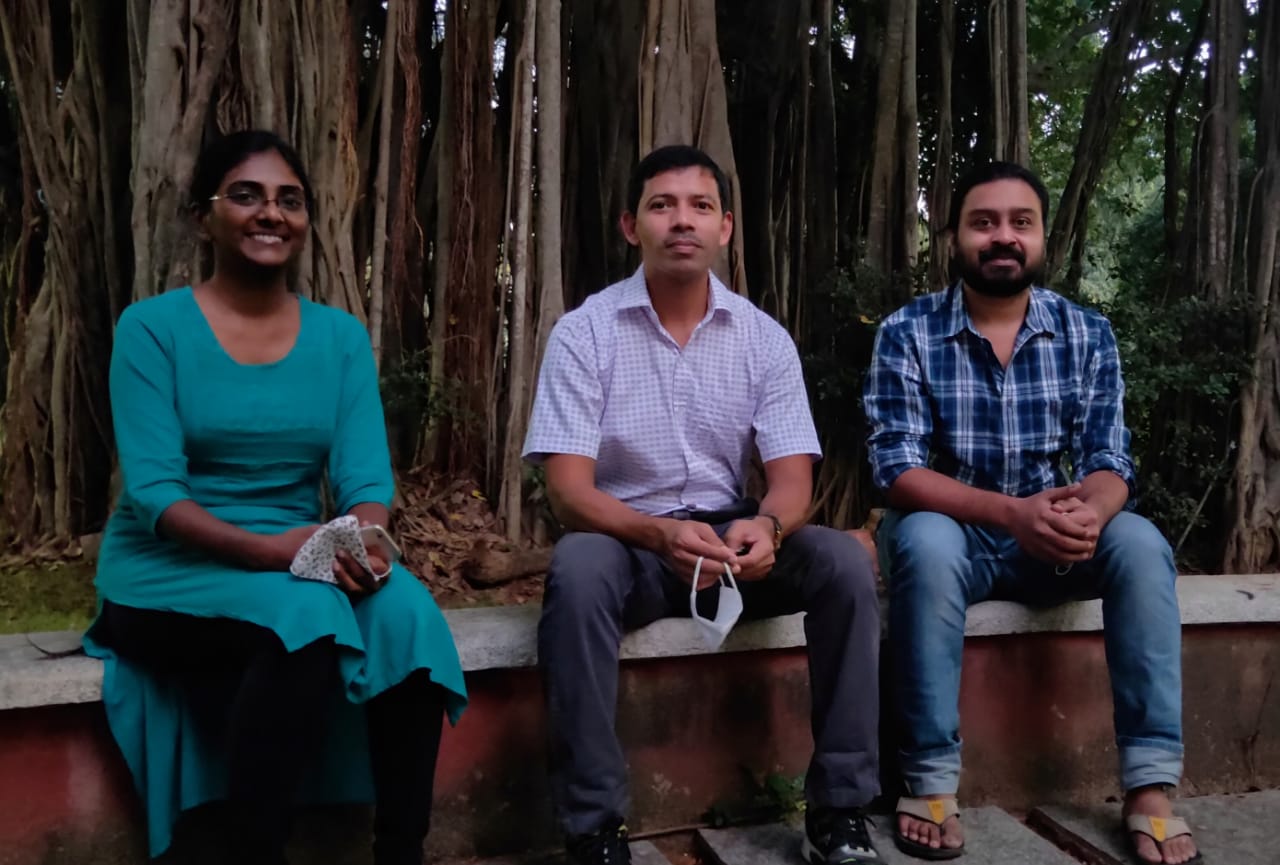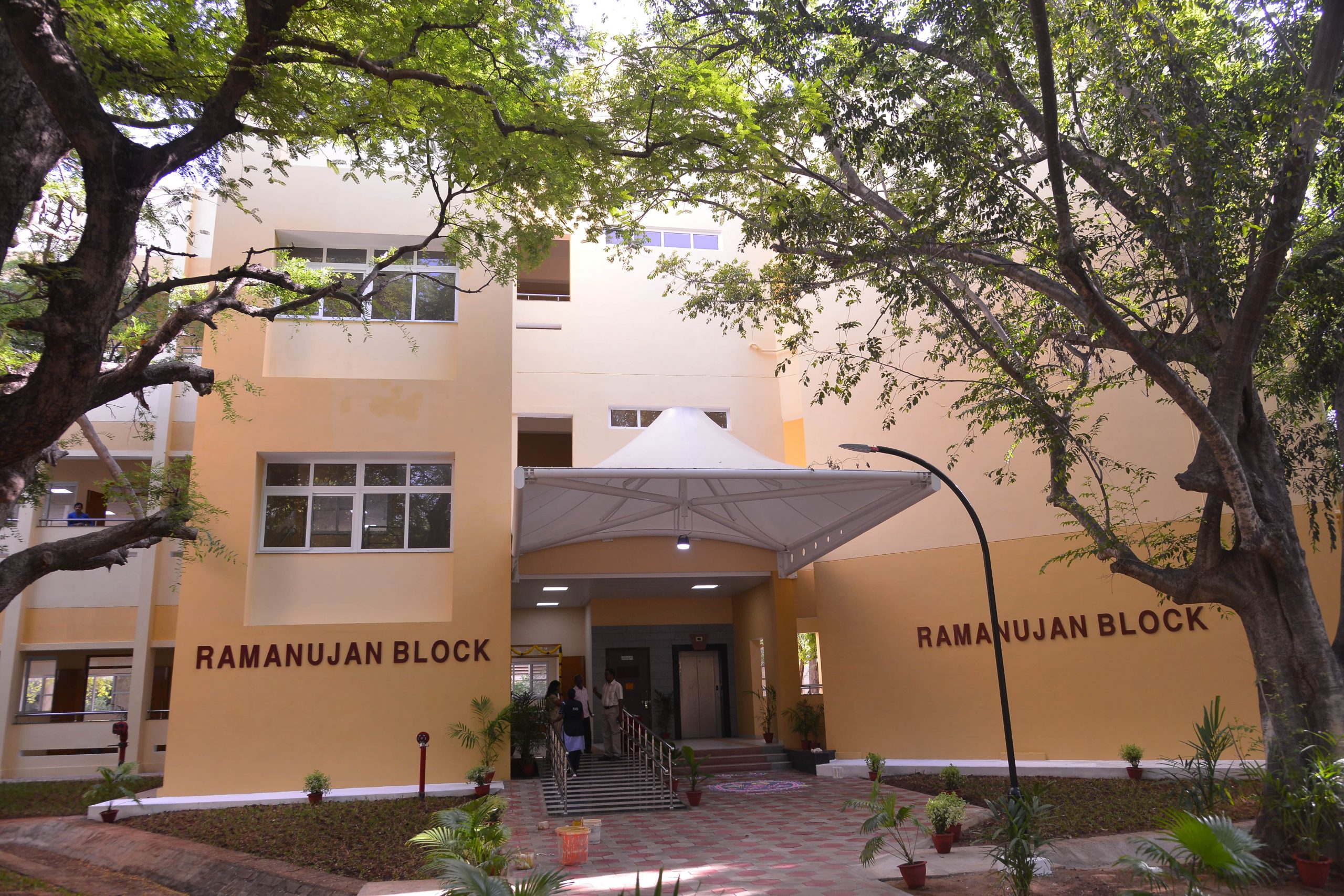Best Books to Read in 2023
Best Books to Read in 2023 Are you a bookworm or a bibliophile, if yes, then this is the ...
IIT Madras researchers are working on a revolutionary new idea that can pave way to effective drugs for treating HIV/AIDS.
Using molecular dynamics simulations, IIT Madras researchers have shown that introducing electrostatic interaction sites on potential drug molecules can enhance the efficacy of the antiviral drug against the HIV virus.
 IIT Madras researchers were led by Professor Sanjib Senapati, Department of Biotechnology, IIT Madras, along with his research scholars, Mr. Mohammed Ahsan and Ms. Chinmai Pindi.
IIT Madras researchers were led by Professor Sanjib Senapati, Department of Biotechnology, IIT Madras, along with his research scholars, Mr. Mohammed Ahsan and Ms. Chinmai Pindi.
The results of the ground-breaking work of IIT Madras researchers have recently been published in the prestigious peer-review Journal of the American Chemical Society – Biochemistry.
AIDS is one of the most devastating diseases and is a major cause of death among youth in many parts of the world.
Since its outbreak nearly four decades ago, tremendous efforts have been directed towards development of antiretroviral therapies that target different stages in the life cycle of the virus that causes this deadly disease, say IIT Madras researchers.
The pressing need for better drugs to combat drug-resistant HIV strains led IIT Madras researchers such as Professor Sanjib Senapati to delve into the molecular structure of the protease to identify weak sites that can offer a handle for better inhibitor development.
One of the routes that drug developers work on is to attack is HIV-1 protease (HIVPR), an essential enzyme that is used by the AIDS virus for growth and maturation.
Drug designers have aimed at developing efficient inhibitors of the enzyme – inhibitors are molecules that bind with the enzyme, thereby making it unavailable to the virus for growth and maturation.
Professor Sanjb Senapati who led the team of IIT Madras researchers said current inhibitors that target HIVPR make use of the weak forces of attraction called ‘van der Waal’s forces’ to attach themselves to the protease molecule.
Given that these forces are weak, the efficacy of the drug is variable and the virus will soon become resistant to them, said Professor Sanjib who led the team of IIT Madras researchers.
Recent useful data obtained using analytical techniques such as neutron diffraction and NMR, on the molecular structure of the target HVPR enzyme, have encouraged Prof. Sanjib Senapati to re-visit the patterns of HVPR-inhibitor binding.
By using state-of-art computational techniques IIT Madras researchers have uncovered vital data that can be used for design of more efficacious drugs.
The Molecular Dynamics (MD) simulation studies conducted by IIT Madras Researchers showed the presence of a strong and asymmetrical electric charge in the active site of the HIVPR.
If a drug molecule can be designed with a complementary charge, so that it can bind tightly with this active site through electrostatic attraction, it can permanently deactivate/inhibit the enzyme, say IIT Madras researchers.
Current drugs lack this electrostatic complementarity, said Professor Sanjib.
 This must be investigated because it is well-known that electrostatic forces between molecules are much stronger than van der Waals forces,” said Professor Sanjib Senapati, who led the team of IIT Madras researchers.
This must be investigated because it is well-known that electrostatic forces between molecules are much stronger than van der Waals forces,” said Professor Sanjib Senapati, who led the team of IIT Madras researchers.
Thus, Professor Sanjib and his team of IIT Madras reasearchers propose that drug design strategies should embrace both electrostatics and van der Waals interactions to complement the HIVPR active site architecture.
Further, IIT Madras researchers team believes that such compounds will be effective against both wild type and resistant HIV variants.
This is a paradigm-shifting idea and will offer a whole new approach to the development of drugs for HIV-AIDS.
Professor Chandra Verma, who has a Ph.D. from Bioinformatics Institute, A*STAR, Singapore and is not involved in this IIT Madras Research, predicts a bright future for HIV drug development, with such knowledge base.
 Professor Chandra Verma heaped praises on the work of IIT Madras researchers.
Professor Chandra Verma heaped praises on the work of IIT Madras researchers.
‘This is a remarkable discovery, says Professor Chandra Verma of Professor Senapati’s work.
It is one that will hopefully open a new window into novel screening/designing efforts that will lead to the availability of drugs that can combat both the wild type and the resistant protease, satisfying to an unmet need in the arsenal of drugs used to treat the disease, said Professor Chandra.
Also read – Most toughest exams in India
S Vishnu Sharmaa now works with collegechalo.com in the news team. His work involves writing articles related to the education... (Full bio)

Best Books to Read in 2023 Are you a bookworm or a bibliophile, if yes, then this is the ...

In the exhilarating journey of 10 Proven Memorize Techniques for Students learning, memory is your trusty companion. Whether ...

Top 20 toughest exams in world is about exams in the world that required very hard work to ...

Top 20 toughest exams in India - Exams are the perhaps most toughest moments for any student. A ...

Top 20 Colleges of DU Getting admissions to the top 20 colleges of DU is a dream for every ...

Top 20 NITs of India - Amongst the 31 NITs in India, today, we are talking ...

Here are the Top 12 Artificial Intelligence in Mumbai. Artificial intelligence (AI) refers to the simulation of human ...

As you stand on the Best Science Courses after 12th academic journey, the realm of science beckons, offering ...
Millions of students have entrusted CollegeChalo to facilitate their seamless and smooth admission process to their dream colleges and universities. With CollegeChalo, you can gain a competitive edge by easily accessing exam and course details to stay ahead of the admission journey. What are you waiting for?
Search your dream college